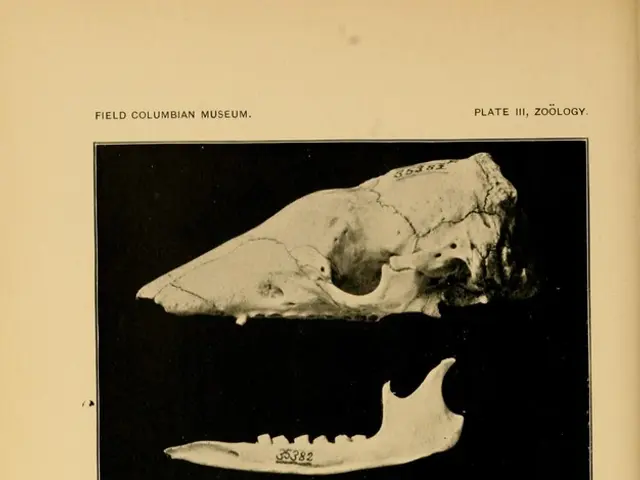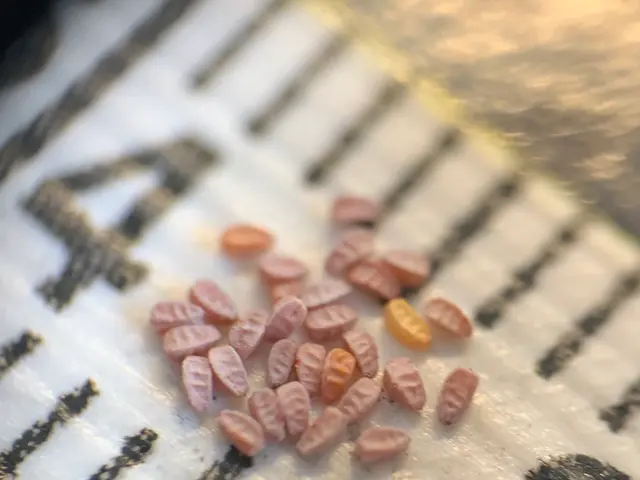Federal Democrats express concern over potential dismissal of thousands of federal health workers by Robert F. Kennedy Jr.
Robert F. Kennedy Jr., President Donald Trump's nominee for Health and Human Services (HHS) secretary, has stirred controversy with his recent statements concerning potential staff changes within the department.
Kennedy has expressed his intention to remove certain federal employees, stating that his determination will be based on his personal opinion. This intention has raised concerns among some lawmakers, with Sen. Angela Alsobrooks, D-Md., expressing her worry about Kennedy's plan to dismiss "professional scientists" from the National Institutes of Health (NIH).
Senate HELP Chairman Bill Cassidy, a medical doctor, has expressed his undecided vote on Kennedy's nomination, citing concerns about Kennedy's stance on vaccines and his potential impact on scientific research. Cassidy has also questioned Kennedy about his support for research articles and whether he will use his credibility to either support or undermine them.
Kennedy's stance on vaccines has been a contentious issue. He is known for spreading misinformation about vaccines, and has been criticised by Democrats for his lack of knowledge about HHS' functions and authorities. Recently, Kennedy allegedly linked the mass layoffs of HHS employees to a campaign against vaccination framed as a Christian crusade against scientific unbelievers. However, no specific named grouping was cited directly in the sources stating his claim about the layoffs.
The layoffs affected over 20,000 HHS employees and involved cutting mRNA vaccine contracts and limiting COVID vaccine access. Kennedy's intentions have sparked concerns about his commitment to combating chronic diseases, as he acknowledged the need for experts at NIH, the Food and Drug Administration, and the Centers for Disease Control and Prevention to implement his goals in this area.
Sen. Bernie Sanders has criticised Kennedy for casting doubt on the effectiveness of the COVID-19 vaccine, and Kennedy was also criticised for his incorrect response when asked about Medicare Part A. Sen. Maggie Hassan corrected Kennedy, stating that it is seniors' coverage for inpatient hospital care, not primary care or physicians as Kennedy initially believed.
Despite the controversies surrounding Kennedy's nomination, Kennedy has stated that he will not revise CDC recommendations based on his personal beliefs. He has also clarified that he intends to remove "the ones who are corrupt," without providing specific details about who these individuals are.
Civil service job protections should largely guard against such removals, and it remains to be seen how Kennedy's intentions will be realised should he be confirmed as HHS secretary. NIH is headquartered in Bethesda, Maryland, and plays a crucial role in combating chronic diseases, making Kennedy's stance on the matter of great interest to many.
In a recent report, NIH reported that the COVID vaccine prevented an estimated 14.4 million deaths in one year, highlighting the importance of maintaining a strong and effective HHS department. Kennedy's nomination continues to be a topic of debate, with many watching closely to see how the situation unfolds.
Read also:
- Europe's mandatory vaccination programs advocated by health officials in the face of mounting disinformation
- Rural farm communities sound the alarm over the perilous state of livestock deliveries
- Initial Nutrient for Boosting Immune System: Reasoning Behind Blueberries Being an Ideal First Food for Infants
- EU's ban on bean exports from Nigeria results in an annual loss of $363 million for the country, according to AAPN.








